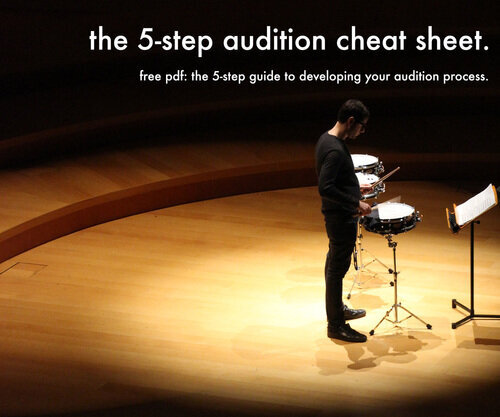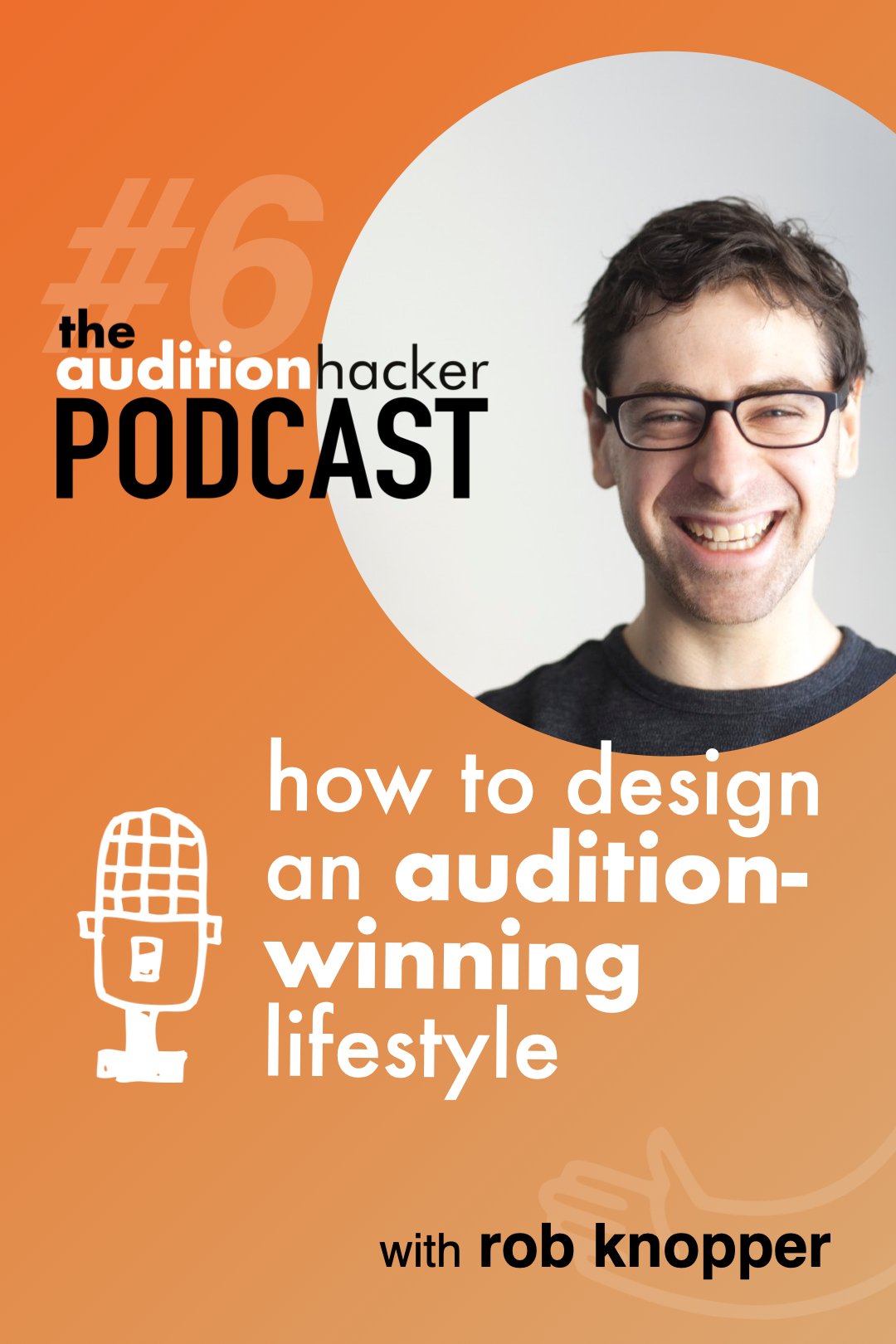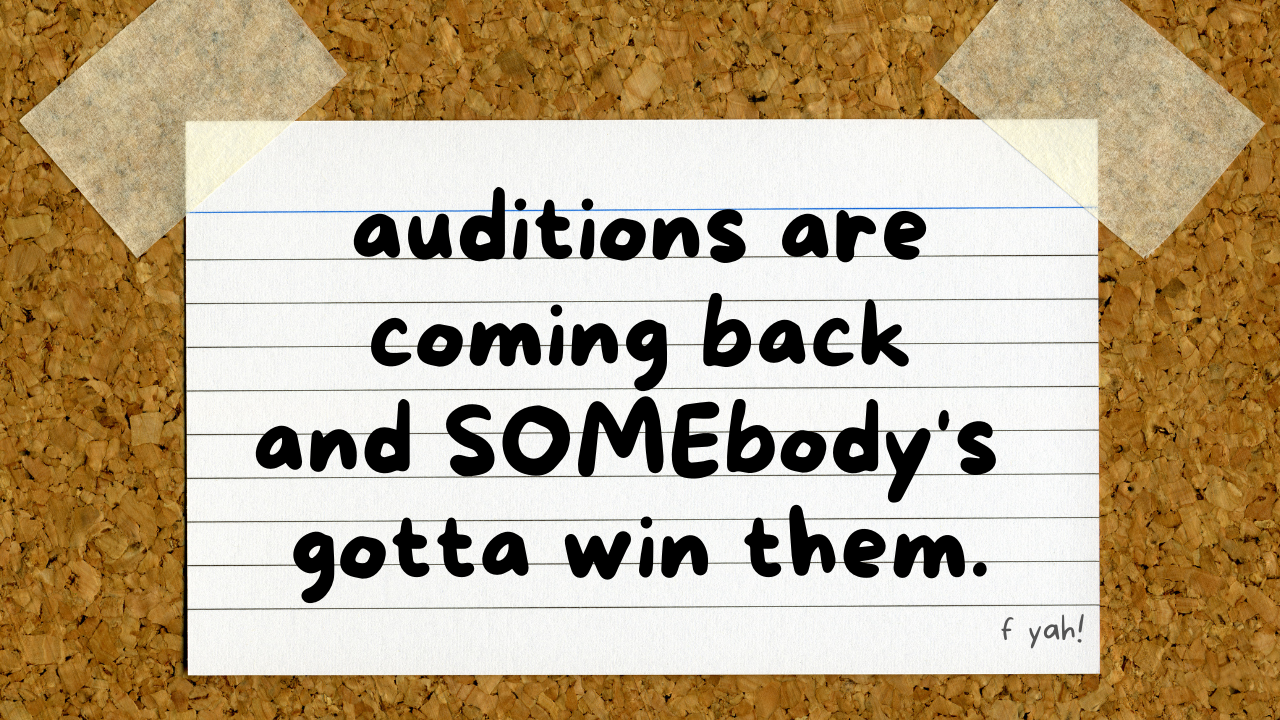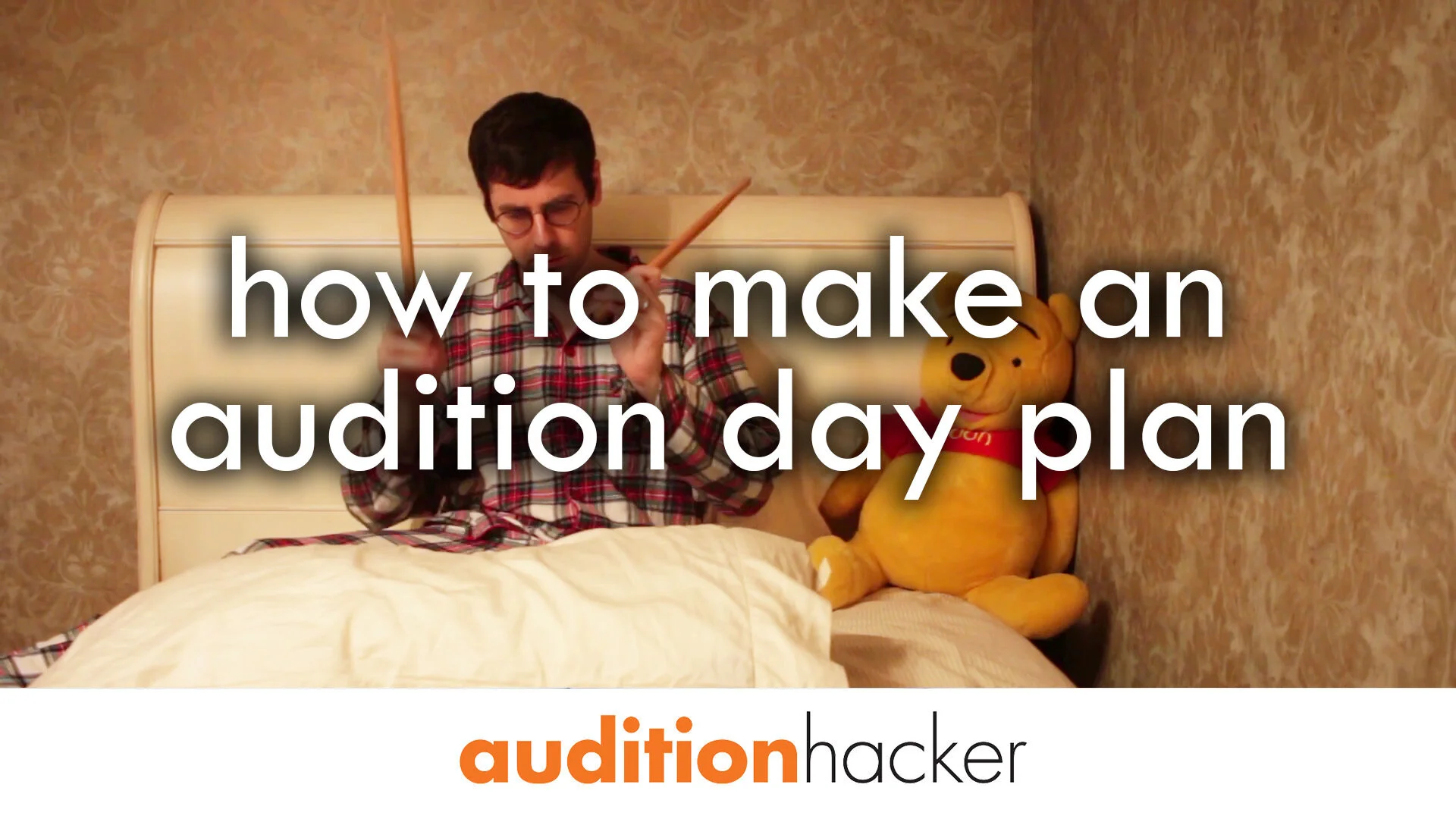...should you drink coffee before an audition, or not?
...should you get up early, or sleep in?
...what exactly should you do in the warm-up room?
...and what should you do the week leading up to the audition?
these are all great questions. but do they have a “right” answer?
the actions you take the day of the audition have a huge impact on your playing. and all the work you did leading up to that day is on the line.
so how do you decide exactly what to do on audition day?
well, everyone’s ideal audition day approach is different. you need a unique plan for audition day that reflects who you are: your personality, your energy levels, and your particular causes and symptoms of nerves.
you’ll have to develop a plan to approach audition day. then you’ll test it, figure out what can be better, and improve it.
so to help you make a starting plan on how to structure audition day, i wanted to give you some ideas on how top professionals do it.
i had the pleasure of chatting with three musicians from the detroit symphony:
caroline coade, viola
sarah lewis, assistant principal oboe
amanda blaikie, second flute
this video is about how 3 musicians deal with audition day. there’s definitely no one-size-fits-all solution.

want to nail your next audition?
here’s the 5-part audition preparation method that i used to win a job in the MET orchestra.
the best part? it works for every instrument.
it's episode #8 of the auditionhacker podcast, and i'll go over my best methods for getting better feedback.
it’s episode #7 of the auditionhacker podcast, and i’ll go over:
how i spent 6 months perfecting the 12 delécluse études,
the special strategy i used in preparation, called “the magical shrinking self-recording workflow”,
how preparation needs to be structured for a recording vs. a live audition, and
my best tips and strategies to make a recording session go smoothly.
it’s episode #6 of the auditionhacker podcast, and i’m going over:
the legendary and now-defunct practice of challenges,
adopting the olympian mindset as a musician, and
the most accurate indicator of future audition success.
i've worked with hundreds of musicians on audition preparation. and nothing - NOTHING - has been as effective and life-changing as when they start self-recording the right way.
imprecise rhythm is something that can get you cut from an audition IMMEDIATELY (regardless of your instrument). and great rhythm is something that an audition committee can sense, both consciously and subconsciously. hearing someone play in the pocket just feels good.
well, i have a few tricks up my sleeve to straighten out my rhythm, and today i'm sharing one of the most effective strategies.
in today's episode, i'll go over:
my audition journey and how i ended up winning the met opera job,
3 of my favorite audition hacks, and
the one thing that's so much more meaningful than the result of the audition.
things i do on audition day:
warm up by playing on the hotel pillow,
watch vast amounts of tv shows on my phone, and
never drink coffee.
when i was in detroit in february i got to interview three great DSO musicians on how they approach audition day. pretty fascinating to see how their approaches are so different from each other.










in 2019, a cellist named maria reached out to me about her audition struggles. on paper, she was the “worst audition candidate ever” (her words). she had 2 small children, a full-time teaching job, and hadn’t taken an audition in 4 years.